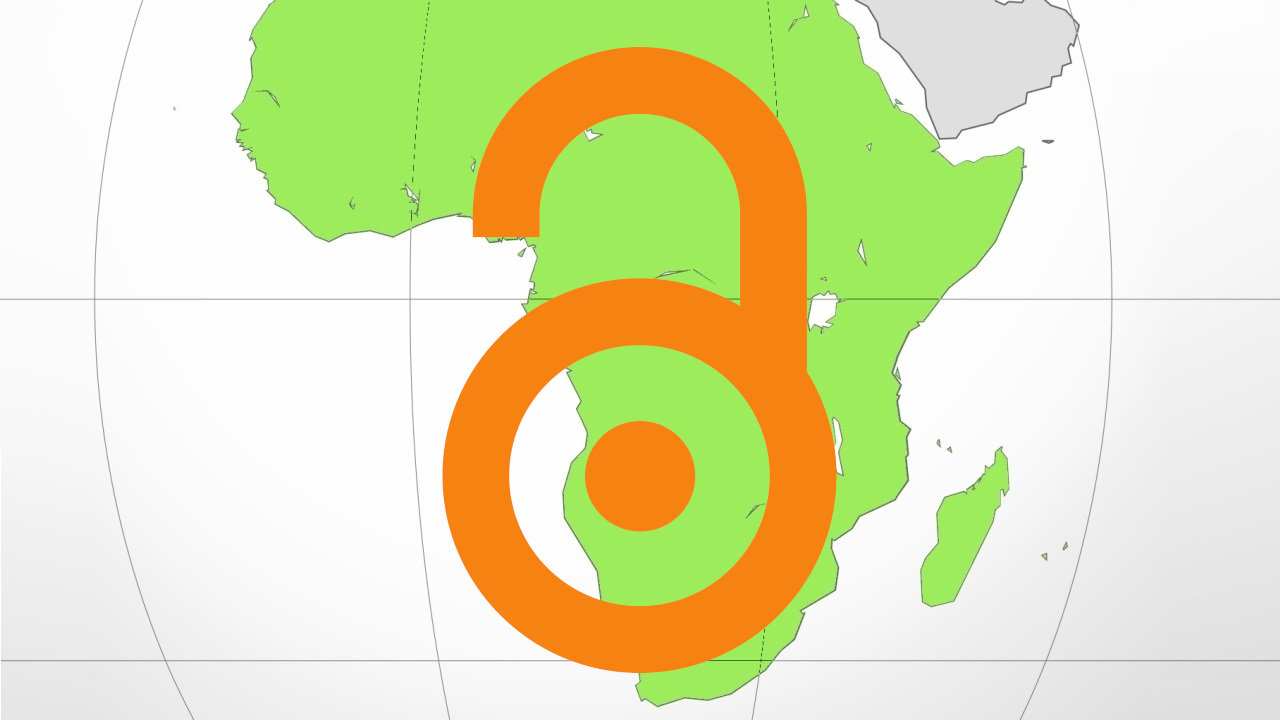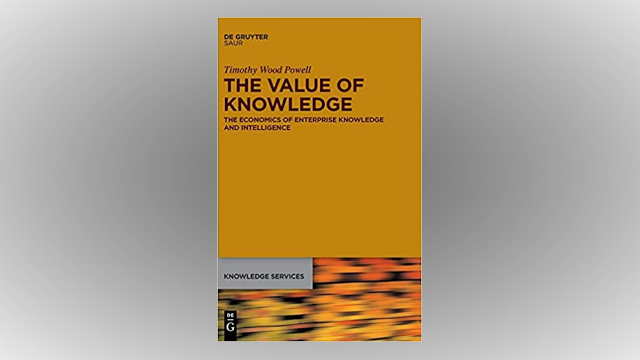
Open access in sub-Saharan Africa
Thank you for the RealKM Magazine series presenting the book Reassembling Scholarly Communications: Histories, Infrastructures, and Global Politics of Open Access1. As someone who is also doing some of the current thinking about that topic, my comments below focus on “Epistemic Alienation in African Scholarly Communications: Open Access as a Pharmakon” – the Thomas Hervé Mboa Nkoudou chapter2 about open access (OA) in Africa.
There are three clear questions practically related to OA in sub-Saharan Africa:
- Does it help in providing access to African literature for both Africans and non-Africans?
- Does it improve access to non-African literature for Africans?
- Does it help Africans to get their research published?
And of course there are the broader social questions regarding coloniality and epistemic alienation.
OA and access to African literature
Regarding the first, this is the “coloniality” issue. My short 1995 editorial3 in the British Medical Journal argues for including literature from all countries in indexes like Scopus, Web of Science and MEDLINE. Nkoudou states that African research literature is ignored in the indexes. This was certainly extremely true 20 years ago (as my 1995 editorial attests), but is less true now. As we know, this situation has changed rapidly in the last twenty years, as the internet vacuums up every scrap of content available. One by one, all the journals of the world are being digitized, including those published in Africa.
Ultimately, though, this is a problem of scientific communication and the publishing industry. If an African journal is missing from an index, this has nothing to do with open access, which certainly doesn’t produce a negative impact. In fact, since open access focuses on digital versions of journals, going OA can help a journal to get accepted into an index.
As it happens, I have some unhappy personal experience in this area. I set up a project called ExtraMED back in the 1990s because I believed that there was value in medical literature from “the South” which was excluded from the narrow collection of journals adopted by the MEDLINE index. I made extensive agreements with some 200 journals from Africa, Asia and the Americas to include the full text on monthly CD-ROMs. We tried to cover costs (and collect revenue for the journals) from sales to libraries, but the world wasn’t ready for it, and it nearly bankrupted me. The real positive was that ExtraMED contributed to forcing the doors of MEDLINE open to many more journals from the global South in subsequent years. Much later, when I was Secretary General of the UK Authors Licensing and Collecting Society, I started a campaign to get academic writers to push for OA.
OA and access by Africans to non-African literature
This is around the question Nkoudou calls “epistemic alienation” (“the distortion of one’s native way of thinking, and of seeing and speaking of one’s own reality”). I fully agree that this is a key issue in the decolonisation of knowledge. However, this is surely a consequence of a much broader phenomenon – the impact of exterior cultures on indigenous ones, the impact of the whole of contemporary scientific communication and the internet.
Nkoudou says, “this dependence profoundly affects the African researcher’s way of thinking. And current OA policies are not helping to change this situation, because many of them are international and shaped for Western contexts.” That’s true, but the complaint that OA is “not helping” isn’t exactly scathing criticism.
The main impact of OA is that it has undoubtedly provided Africans with far greater access to non-African literature than ever before. Is that really a bad thing? Surely it has to be up to the reader to carry out the cultural appropriation – the good old caveat emptor – let the buyer beware? Africans (and non-Africans) are also getting access to much more African literature as a result, as well.
Imagine if it was the other way round – that OA provided less access to this literature. Perhaps, epistemically, this would be good in some fields, but certainly not in the health sector, as things currently stand. African information specialists and researchers would undoubtedly be the first to protest if OA was to be withdrawn.
OA and publication by Africans in journals published outside Africa
The main obstacle posed by OA noted in Nkoudou’s chapter is the article processing charge (APC). He says APCs “have gained importance as the dominant and most prominent, even if not the most widespread, business model for open-access journals.” That little clause hidden in the middle of this sentence is worth considering: APCs may be the dominant element in the discourse, but they are certainly not the “most widespread” business model. About 36% of journals are OA, and only 39% of OA journals require the payment of an APC. So when we are complaining about APCs, we are complaining about the practices of about 14% of all journals.
In any case, publishers usually waive charges for researchers from low- and middle-income countries (LMICs). I can’t remember ever hearing that a paper submitted by an African researcher and recommended by peer review was rejected by a respectable APC-funded OA journal because the author or author’s institution refused to pay the APC. The APC is simply not a real barrier for African researchers writing papers good enough to be published. (On the other hand, it is a barrier for people like me, teaching at a UK university but without research funding – and as we know it is next to impossible to get research funding for knowledge management).
Having said that, I completely acknowledge, as did the UK government report developed by INASP4 that, “Fee waivers can only ever be a short-term solution for LMICs, acting as a temporary fix to enable LMIC researchers to access Northern driven publishing systems, which do not work for LMIC research economies.” Incidentally, this precise issue is my main concern in my current (unpaid) advisory role with the US Copyright Clearance Centre.
The journals that are most likely to refuse a paper for non-payment of the APC are the so-called “predatory journals”, which will publish almost anything if you pay them. Predatory journals only exist to milk APCs from innocent academics, and are not respected or accepted by any academic community.
Finally, the question of open access books:. Like most readers and most writers, I am all in favour of OA books. Springer Nature surveyed5 2,500 academic book authors about OA for books, and they came up with the following main findings:
- Most book authors support the idea that all future scholarly books should be open access
- Pro-open access attitudes are stronger among junior researchers, researchers based in Europe and Asia, and previous open access book authors
- Ethical reasons (equality in access), and reaching a larger audience are identified as key motivations for choosing open access for books
- Lack of awareness, concerns about quality, and lack of funding are barriers to OA publication
- The majority of book authors want more financial support from funders for open access book publication
- Gold open access is the most preferred policy for open access books
- Reputation of publishers matters less to open access book authors but is still the deciding factor for publication.
So, while I am definitely in favour of OA books., as the above findings show, the most-touted (and really the only feasible) method of providing these is Gold OA – in other words, the dreaded APC. Essentially what this means is that the book has to be subsidised by an individual or institution. How to avoid that this process (and the content) is “Western-centric” beats me. I would welcome ideas on this and the other issues raised regarding open access for Africa.
Header image source: Created by RealKM Magazine from Africa (orthographic projection) (Wikimedia Commons, CC BY-SA 3.0) and Open Access logo PLoS (Public Domain), licensed for reuse with attribution under CC BY-SA 3.0.
References:
- Eve, M. P., & Gray, J. (Eds.) (2020). Reassembling scholarly communications: Histories, infrastructures, and global politics of Open Access. MIT Press. ↩
- Nkoudou, T.H.M. (2020). Epistemic Alienation in African Scholarly Communications: Open Access as a Pharmakon. In Eve, M. P., & Gray, J. (Eds.) Reassembling scholarly communications: Histories, infrastructures, and global politics of Open Access. MIT Press. ↩
- Zielinski, C. (1995). New equities of information in an electronic age. BMJ, 310(6993), 1480-1481. ↩
- Harle, J., & Warne, V. (2020). Open Access: challenges and opportunities for Low-and Middle-Income Countries and the potential impact of UK policy. Report of a consultation commissioned by the UK Foreign, Commonwealth and Development Office in collaboration with National Institute for Health Research and UK Research and Innovation. ↩
- Pyne, R., Emery, C., Lucraft, M., & Pinck, A. S. (2019). The future of open access books: findings from a global survey of academic book authors. Springer Nature White Paper. ↩






